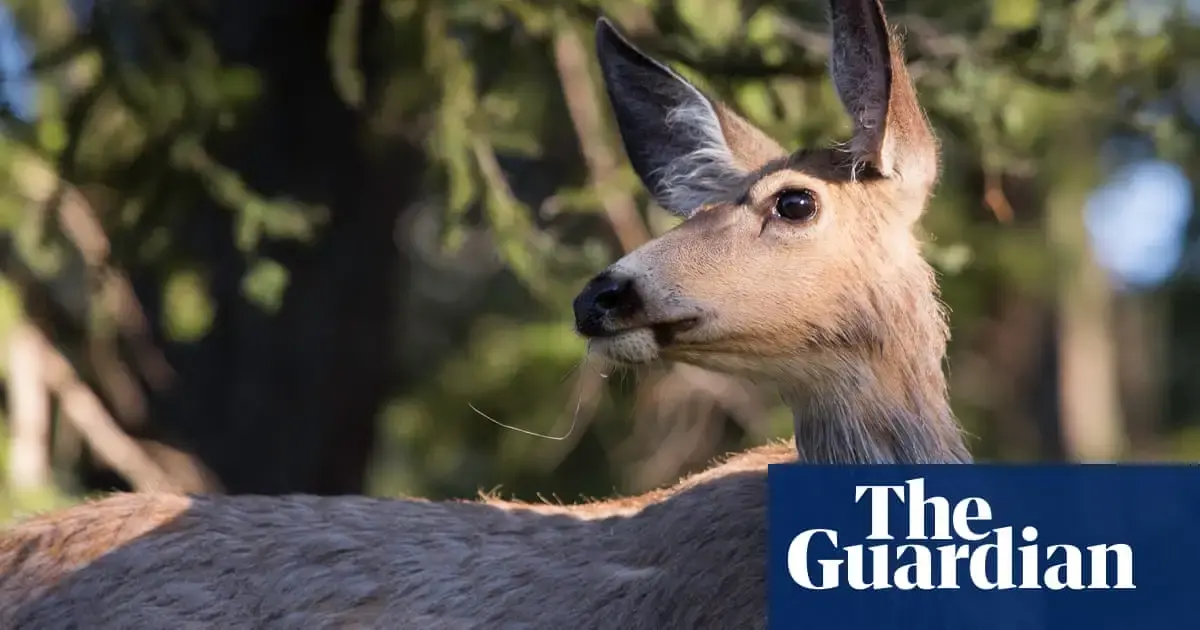Somehow this will end up being Obama’s fault.
People think I’m joking when I say that we need to repopulate wolves and mountain lions in North America.
Maybe share this: How Wolves change Rivers.
Colorado is doing it as we speak.
I think what trips people up is that I explicitly include New Jersey for wolf reintroduction.
I say put them everywhere they natively lived, and make it VERY bad for people if they hurt them.
everywhere they natively lived
sorry ma’am, your child was one of thirty five killed when we reintroduced wolves to kindercare because they were native here in the 1300s, but their comeback is something to behold, and the survivors have quite a story!
I kid, but also, reintroduce them to areas where they’re least likely to bump up against population, all the areas they natively lived in the past are, unfortunately, overrun by humans. I live in Washington state, where we’re seeing grey wolves slowly come back. I’m all for it. And here in Seattle, we’ve always had Coyotes living around the town, on the large greenways. Keep your cats inside if you love them!
And your elected leaders are fighting it: https://www.newsweek.com/wolves-reintroduced-colorado-lauren-boebert-1853656
goddamn she’s dumb.
There’s progress being made on that front. According to the internet, there are already a lot of cougars in my area.
Lol nice
may jump to humans
That’d be some shit!
I mean there’s precedence. Avian bird flus have been known to infect humans.
The deer disease is the same family as BSE which does jump to humans, so it’s fairly likely.
But it’s only transmissible via consumption like mad cow disease, is that correct? If so, at the very least it shouldn’t become an epidemic, just very bad for the environment and deer jerky enthusiasts.
Edit: Nope, nvmd, I’m dumb. They said it’s really contagious and these prions can persist a long fucking time on surfaces. I’m gonna just never go outside again, thanks, I ain’t fucking with no prion disease.
It’s tricky. So I was listening to a BSE radio doc recently which had an episode about the deer. They actually don’t know if BSE was transmitted through eating the beef, in fact there’s cases of vegetarians getting it. It’s still being studied. They’re very worried about people eating infected deer, which is quite likely being as they’re easy to kill, but also having anything to do with them because they just don’t know how it moves from animal to animal, deers rarely eat each other so it’s not super likely that’s the only way.
Seems about on par for 2020 part 5.
🤖 I’m a bot that provides automatic summaries for articles:
Click here to see the summary
For years, chronic wasting disease (CWD), caused by prions – abnormal, transmissible pathogenic agents – has been spreading stealthily across North America, with concerns voiced primarily by hunters after spotting deer behaving strangely.
The prions cause changes in the hosts’ brains and nervous systems, leaving animals drooling, lethargic, emaciated, stumbling and with a telltale “blank stare” that led some to call it “zombie deer disease”.
Its discovery in Yellowstone, whose ecosystem supports the greatest and most diverse array of large wild mammals in the continental US, represents an important public wake-up call, says Dr Thomas Roffe, a vet and former chief of animal health for the Fish & Wildlife Service, a US federal agency.
Roffe had been predicting CWD would reach Yellowstone for decades, warning that both the federal government and the state of Wyoming needed to take aggressive measures to help slow its spread.
“The BSE [mad cow] outbreak in Britain provided an example of how, overnight, things can get crazy when a spillover event happens from, say, livestock to people,” Anderson says.
Dr Raina Plowright, a disease ecologist at Cornell University, says CWD should be viewed against a backdrop of dangerous emerging zoonotic pathogens that are moving back and forth across species barriers between humans, livestock and wildlife globally.
Saved 82% of original text.
And if it does they’re sure to blame me for it somehow :(
WTF? What did you do 😳?
I’m guessing they’re Obama.
🤣
Their username
Only if you get eaten. Are you planning to get eaten, or do you keep company with people who might take interest in eating you?
I suppose you could theoretically just have sex with someone and hope for the best.
Are you planning to get eaten, or do you keep company with people who might take interest in eating you?
vore





